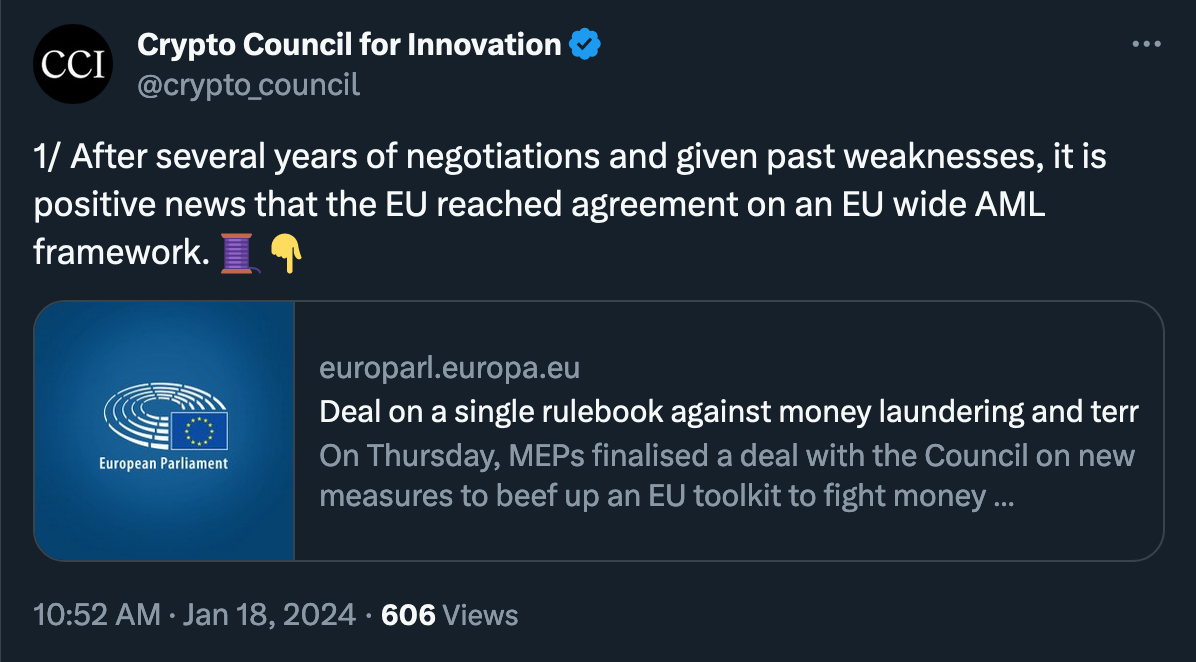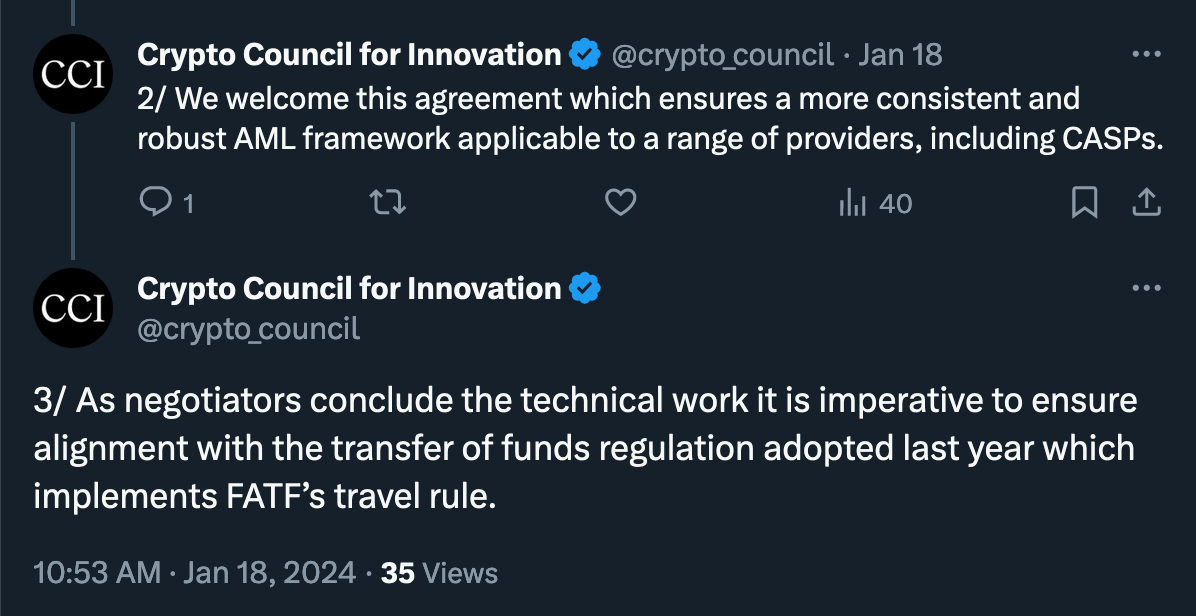EU has reached a provisional agreement to extend AML to the cryptocurrency sector. ‘Most of the crypto sector’ will be impacted by the new rules, which are still pending finalization.

EU policymakers have tentatively agreed on parts of a comprehensive regulatory framework to combat money laundering. The agreement mandates that cryptocurrency firms enforce "customer due diligence measures" for transactions valued at €1,000 or above.
According to the press release, the agreement aims to enhance the organization of national anti-money laundering systems throughout the EU, closing potential loopholes that criminals might exploit.
“The provisional agreement on an anti-money laundering regulation will, for the first time, exhaustively harmonise rules throughout the EU, closing possible loopholes used by criminals to launder illicit proceeds or finance terrorist activities through the financial system,” — Council of the EU press release

(Thread)
The agreement intends to expand the list of obliged entities — which currently includes financial institutions, banks, casinos, and asset management services — to include new entities such as traders of luxury goods, professional football clubs and agents, and crypto services providers. According to the press release, new rules “will cover most of the crypto sector,” forcing all crypto-asset service providers (CASPs) to implement due diligence on their customers.
Under these new regulations, CASPs must authenticate their customers' information and report any suspicious activity. As a result, to reduce the risks involved when transacting with self-hosted wallets, CASPs will need to apply due diligence for operations valued at €1000 or higher.

(Thread)
The Council and Parliament also introduced “enhanced” measures regarding cross-border correspondent relationships for crypto-asset service providers. These measures dictate that all obligated parties must apply enhanced due diligence measures to transactions and business relationships that involve high-risk third countries. These are countries “whose shortcomings in their national anti-money laundering and counter-terrorism regimes make them represent a threat to the integrity of the EU’s internal market.”
It’s worth noting that, under the new regulations, the Financial Intelligence Unit (FIU) will be granted “immediate and direct access to financial, administrative, and law enforcement information,” which includes financial data on funds transfers and crypto transactions.
The current provisional agreement comes roughly six months after the European Union finalized its Markets in Crypto Assets Regulation (MiCA), which became the first crypto regulatory framework in the region. However, before these updates become enforceable, they require official ratification by the Parliament and the Council.


